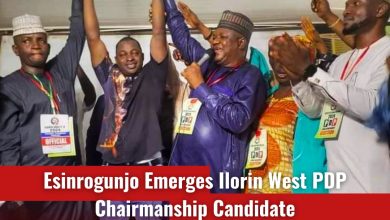Your loyalty is to Tinubu, not Lagosians, Agbaje blasts Sanwo-Olu

The Lagos State governorship candidate of the Peoples Democratic Party (PDP), Jimi Agbaje, has said that the candidate of the All Progressives Congress (APC), Jide Sanwo-Olu, would not have been contesting for the Lagos seat if not for the influence of his godfather, Asiwaju Bola Tinubu.
He said this in response to a statement made by Sanwo-Olu that he found it hard to understand the rationale behind Agbaje’s #freeLagos mantra, and the allusion that Lagosians were in bondage.
On his verified Twitter handle, @jimiagbaje, the PDP candidate said, “You made a very good point that we should not trivialize our lives. However, in all of your public statements in recent times, you have paid homage and obeisance not to Lagosians but to whom you refer to as National Leader for the opportunity to be a candidate. In effect, you couldn’t have dared to run if you were not handpicked to be endorsed.”
Agbaje added, “Freedom is an opportunity for Lagosians to elect a governor that they can hold accountable, a governor that they can question and on whose table the buck stops. Freedom is running an open government where the finances of the state are not opaque. Freedom is allowing Local Governments to run as they should (a true third tier of government) and not as a mere appendage of the state.
“Freedom is domestication of the Freedom of Information bill. Freedom is the ability of an elected leader to choose his own cabinet.”
Agbaje also reacted to the issue of Igbo in Lagos, which the APC candidate addressed. Sanwo-Olu had debunked the notion that Lagos hates Igbo. He highlighted the roles that Igbo had played and are still playing in the politics and governance of Lagos state.
In response, Agbaje said, “Oh yes, Lagos does not dislike the Igbo, your political establishment does. The royal utterance of 2015 is still fresh on the minds of the entire electorate.”





